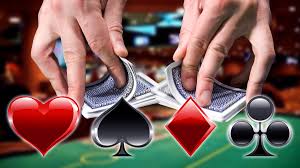Losers’ Table Č You’re at your computer and looking at all of the different tables available for your favorite gambling game, and while you do take some time to look around, you have a sinking feeling that you’re going to walk away without any money. So you’re not really paying much attention to the game at all, and are busy doing other things while your poker calculator runs around, taking notes, and doing the calculations you need to make while you play. If you are a relatively new poker player, chances are that you haven’t yet learned the importance of the Losers’ Table. By following some simple guidelines, you can be the next poker star, but you have to be willing to learn the hard way and walk away from the game with some lessons learned.
Whenever you feel that you are becoming a problem gambler, or are starting to lose consistently, its time to take some action and start researching. You are probably aware of how much you are betting at your favorite casino sportsbook, watching ESPN, or researching the tough numbers on your favorite team. You are betting too often and getting on a poker player type of line, but unfortunately you’re not earning enough rake to make it worthwhile.
Your poker game is going to be different than other games that you may play in. The majority of difficult decisions you will be asked to make will require you to leave your current game and start playing in a different one. You will have to learn a completely new table, and start over with your original stack.
While you are learning a new game, you can use an odds calculator to help you get a rough idea of what the odds of winning your particular hand are. You don’t always have to make your decisions based upon a mathematical odds formula, since your hand strength grows with your opponent’s hand strength. But taking just a few minutes to do some basic math before you compete against players that are likely to be better than you is what you want to do.
Many poker players will swear by a program like Poker Edge or Holdem Indicator. These programs can provide you with literally insane amounts of data on your opponents, and make figuring out your odds of winning hands a child’s play. (Of course, you could do the math, but what do you really know about Texas Holdem? If you let an easier program like Poker Edge or Holdem Indicator make the decisions for you, you will end up losing more money.)
On the other hand, if you want to win consistently, you are going to have to gather information on your opponents. You are going to have to peek at their play, and watch their betting patterns, in order to try to get a clear idea of what hands they have, and what their most likely areas for improvement are.
Your pool of opponents will also be much larger than the average limit-claimant players, because the vast majority of recreational players are not as skilled as they claim to be. The typical recreational player probably knows the true scoop on most hands, but are going to be very anxious to try and play and practice their new skills in a real game against someone who is not an experienced limit player.
The absolute worst situation you can possibly have when playing against a new player is having your opponent call all the way up to the river and then make a putt. The frustrating thing about this occurrence is that you called the raise, but the board read Q, T, 9, and now your opponent chips it in. How frustrating is that? Also, if your opponent calls all the way to the river on a putt on a par four hole and you lose to an inside straight, what is your excuse?
So, avoid rookie mistakes like this, and you will be much more likely to win pots and make money playing poker. Generally, if you feel a competitor or a bully is trying to push your buttons, let them push you, and protect your chips. If you are pushing back, that aggressor will get pushed away, either by your raise, a fold, or whatever betting strategy you implement.
Many of the most effective poker strategies rely on deception, and keeping your opponents in the dark. If you deprive your opponents of the knowledge of your hand, you increase the odds of winning hands you should actually win, and reduce the odds of losing hands you should probably lose.
Your reputation as a tight, aggressive player is well recognized by your opponents. Give your opponents plenty of reason to reason why you might play more loose starting hands, and you will be rewarded for it. Also, in the case of deception, when you are caught, and your opponents notice, they will be less likely to trust you again. Let your opponents reason three reasons why you could have played a hand, and they will put less trust in your repeated bets.

